Blog
Validated by ISSO
The Hysopt software has been validated by ISSO. The report literally praises our software as a "powerful tool for optimizing HVAC systems".

Latest blogs

What Determines a NABERS UK Rating for Office Buildings
NABERS UK ratings reflect measured operational energy use in office buildings, making accurate design, modelling and ongoing performance management essential.

Understanding How BREEAM Ene 01 Awards Energy Credits
BREEAM UK NC Ene 01 credits are based on predicted energy performance, requiring accurate modelling and demonstrable efficiency gains in the BRUKL or SBEM assessment.

Modelling Heat Pumps Accurately for SAP 11 Compliance
SAP 11 introduces new modelling rules for heat pumps in UK residential buildings, requiring realistic seasonal efficiency data and temperature assumptions to demonstrate compliance.
Industry insights. Delivered monthly.
Receive the latest information and resources from Hysopt directly in your inbox. Subscribe now to our monthly newsletter.
Thank you! Your submission has been received!
Oops! Something went wrong while submitting the form.

Renovation Milestones Shaping Public Buildings Under the Green Deal
The EU Green Deal sets clear renovation milestones for public buildings, requiring continuous upgrades and strict energy-performance improvements by 2030.

How Fit-for-55 Influences Modern HVAC Retrofit Strategies
The EU’s Fit-for-55 package is reshaping the way buildings are upgraded, driving a shift toward low-carbon heating, higher efficiency and stricter performance standards for HVAC retrofits.

How Seasonal Metrics Help Compare Heating and Cooling Systems
SCOP and SEER offer a clearer picture of year-round HVAC performance, helping engineers and building owners compare systems more reliably.

Using HVAC Simulation Data to Strengthen ESOS Phase 3 Compliance
Physics-based HVAC modelling provides verifiable energy and carbon data that support ESOS Phase 3 submissions with clear, auditable evidence.

The KPIs That Show Whether an HVAC Upgrade Truly Worked
Strong HVAC decisions depend on measurable indicators that clearly show improvements in efficiency, comfort and system behaviour.

How Simulation Data Supports Audits, Funding Applications and Certifications
Learn how physics-based HVAC modelling provides credible, investment-grade evidence for audits, EU funding applications and building certifications such as BREEAM and LEED.

Understanding Why Pump Power Increases in Hydronic HVAC Systems
Learn why pump power may be higher than expected in hydronic HVAC systems and how hydraulic modelling helps identify oversizing, imbalance or control issues.

How HVAC Carbon Savings Strengthen ESG and Compliance Strategies
Learn how verified carbon savings from HVAC modelling support ESG reporting, compliance documents and even carbon credit monetisation.

Improving Cooling Loop Efficiency in Modern Data Centres
Learn how data-centre cooling loops are optimised using hydronic modelling, enabling improved energy efficiency, reliability and chiller performance.

Funding Options for HVAC Decarbonisation in the EU and UK
Discover the key grants and funding schemes that support HVAC decarbonisation in the EU and UK, including heat pumps, district heating and energy-efficient retrofits.

Making Low-Temperature Heating Work in Buildings With Existing Radiators
Learn when low-temperature heating works with existing radiators, how to assess heat output, and what upgrades may be needed to deliver comfort at 35–55°C.

How Control-Strategy Simulation Enhances HVAC Performance Before Installation
Learn how HVAC control strategies such as variable-speed pumping, sequencing and weather compensation can be simulated virtually to improve system performance and comfort.

Why Hydronic System Modelling Goes Beyond What Whole-Building Tools Can Offer
Learn why hydronic HVAC modelling provides deeper system-level insight than whole-building simulation tools like EnergyPlus, and when engineers benefit most from each approach.

Why HVAC Standards Matter: A Practical Guide to EN 12831, ASHRAE and ISO 52120
Understand the key HVAC design standards — EN 12831, ASHRAE guidelines and ISO 52120 — and learn how they influence heating load calculations, system performance and regulatory compliance.

Why Hydronic Systems Outperform Air-Based Heating in Modern Buildings
Learn how hydronic heating compares to air-based heating, including comfort, efficiency, system behaviour and suitability for different building types.

Top 7 HVAC Software for 2026
Explore the top HVAC software platforms for 2026, comparing key features, strengths, and use cases to help engineers and building professionals choose the right tools for modern HVAC design and optimisation.

Fast HVAC Feasibility Assessment for Portfolios: How Templates Create Consistency Across Dozens of Buildings
Learn how templated, model-driven HVAC feasibility workflows help engineering teams deliver fast, consistent assessments across whole building portfolios.

How to Compare Low-Carbon HVAC Scenarios in Minutes Using a Digital Twin
Discover how MEP consultants can quickly compare low-carbon HVAC scenarios using digital twin modelling, enabling faster, more accurate feasibility studies and confident decision-making.

From Assumptions to Accuracy: Why MEP Consultants Should Switch to Model-Driven HVAC Feasibility Workflows
Learn why model-driven HVAC feasibility workflows give MEP consultants faster, more accurate results by replacing assumptions with physics-based system insights.

The Hidden Performance Issues Only a Physics-Based HVAC Feasibility Study Can Reveal
Discover the critical HVAC performance issues that traditional feasibility methods fail to detect — and how physics-based modelling exposes hidden risks long before renovation or decarbonisation decisions are made.

How HVAC Feasibility Modelling De-Risks Heat Pump Integration in Existing Buildings
Discover how physics-based HVAC feasibility modelling helps MEP consultants de-risk heat pump integration by exposing real system behaviour, capacity limitations, and low-temperature performance issues.

Unlocking Decarbonisation: Why Your Next HVAC Feasibility Study Needs Physics-Based Metrics, Not Guesswork
Discover why physics-based metrics are essential for accurate HVAC feasibility studies and how they improve decarbonisation planning, financial analysis and system performance forecasts.

HVAC Feasibility Modelling: Compare CAPEX, OPEX & CO₂ Using Template-Driven Workflows
Learn how HVAC feasibility modelling helps MEP consultants evaluate CAPEX, OPEX and CO₂ outcomes using fast, template-driven workflows that improve accuracy and decision-making.

How to Run an HVAC Feasibility Study in 2 Hours: A Step-by-Step Guide for MEP Consultants
Discover how MEP consultants can complete an HVAC feasibility study in under two hours using modelling-based methods that deliver accuracy, speed, and confidence.

How DHW Load Profiles Influence Heat Exchanger Sizing
Domestic hot water load profiles strongly influence heat exchanger sizing. Learn how flow patterns, peak demand behaviour and regime-changing components affect power requirements and ΔT stability.

DHW Diversity Explained: A Practical Guide for HVAC Engineers
DHW diversity significantly reduces peak design flows in multi-dwelling buildings. This guide explains how tapflows, aggregation and diversity factors improve hot water system design.

Optimising District Heating Connections for Hydronic Stability
District heating systems place unique demands on hydronic networks. Learn how connection design, temperature management and end-unit performance create stable, efficient installations.

Designing Reliable Heat Interface Unit (HIU) Systems
HIU systems must deliver domestic hot water (DHW) and heating reliably across varying load conditions. This article explains how flow, diversity and heat exchange behaviour shape HIU performance.

How Thermal Storage Improves Heating and Cooling Efficiency
Thermal storage tanks help stabilise hydronic systems, improve efficiency and reduce cycling. This article explains how storage works in heating and cooling systems, and why correct sizing is essential.

Comparing Heat Pump Staging Strategies in Real Installations
Heat pump staging determines how capacity is delivered across varying loads. This article compares common staging strategies and explains their impact on efficiency, comfort and hydraulic stability in real installations.

How Parameter Validation Ensures Reliable HVAC Models
Reliable hydronic HVAC modelling depends on correct input parameters. This article explains how parameter validation improves accuracy, prevents simulation failures and strengthens design confidence.

Avoiding Common Simulation Errors in Hydronic Modelling
Simulation errors can hide critical design issues in hydronic networks. Learn the most common causes of failed HVAC simulations and how to avoid them early in the modelling process.

How Sensitivity Analysis Improves HVAC Design Robustness
Sensitivity analysis reveals how design choices affect system performance. Learn how testing parameter variations improves HVAC robustness, stability and energy efficiency.

Dynamic Simulation vs Imposed Load Simulation: When to Use Which?
Hydronic systems behave differently depending on load conditions, control actions and thermal inertia. This article explains when to use dynamic simulation and when imposed load simulation (ILS) gives better insight.

Setpoint Generation: How Profiles Shape HVAC Behaviour
HVAC performance depends heavily on how setpoints are generated. Learn how profiles, ramps and temperature curves shape system response, stability and energy use in hydronic networks.

How Room Controllers Affect System-Wide ΔT and Comfort
Room controllers influence far more than local comfort. Their behaviour affects ΔT, pump performance and the overall stability of hydronic HVAC systems.

Understanding PI Controllers in Hydronic Networks
PI controllers are essential for stable temperature and flow regulation in hydronic HVAC systems. This article explains how they work, why they matter, and how dynamic behaviour influences their performance.

Choosing the Right Control Strategy for Hydronic Systems
A reliable control strategy is essential for stable flow, temperature and energy performance in hydronic HVAC systems. This article explains how to choose the right strategy based on system behaviour and operating conditions.

How Control Valve Authority Impacts HVAC Stability
Control valve authority determines how accurately valves can modulate flow in hydronic HVAC systems. Learn why low authority causes instability and how pumps and hydraulic design influence proper valve behaviour.

Why Composite Circuits Improve Hydraulic Predictability
Composite circuits combine dividing and mixing behaviour into a single hydraulic structure. This article explains why they bring stability, clarity and predictability to complex hydronic systems.

How Headers Influence Flow Stability in Heating and Cooling Systems
Headers play a crucial role in hydronic HVAC systems by distributing flow between circuits. Learn how header design affects stability, temperature control and overall energy performance.

The Role of Tichelmann Loops in Balanced Heating Systems
A clear explanation of how Tichelmann (reverse return) loops help maintain hydraulic balance in heating systems and why they improve stability across multiple circuits.

Why Incorrect Pipe Sizing Destroys System Performance
Mistakes in pipe sizing can cause unstable flows, high pump energy and poor temperature control. This article explains why correct pipe selection is essential for reliable hydronic HVAC operation.

Understanding Hydraulic Circuits: Dividing, Mixing and Throttling
A concise technical overview of how dividing, mixing and throttling circuits shape hydraulic behaviour in hydronic HVAC systems — and why they matter for flow stability and efficiency.
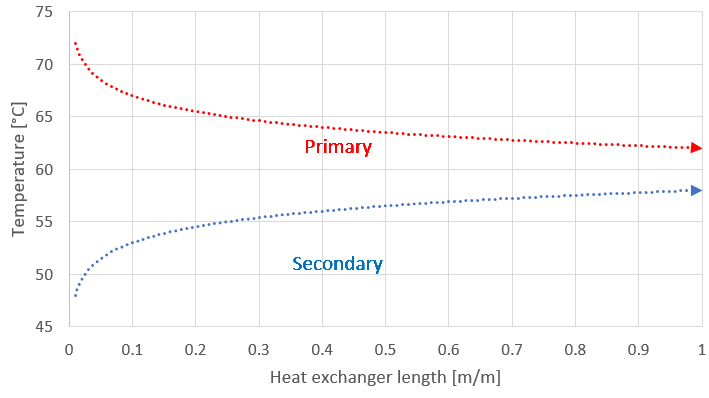
Modelling Heat Exchangers Correctly: The Key to Reliable Heating & Cooling Networks
Accurate heat-exchanger modelling is essential for stable heating and cooling performance. Learn how hydraulic design, flow distribution and part-load behaviour affect real heat-exchange efficiency.
.jpg)
Why HVAC Control Loops Fail (and How to Fix Them with System Simulation)
Unstable HVAC control loops often arise from hydraulic imbalance, poor valve authority and mismatched pump behaviour. Learn how to diagnose and stabilise control loops using system modelling and correct hydraulic design.
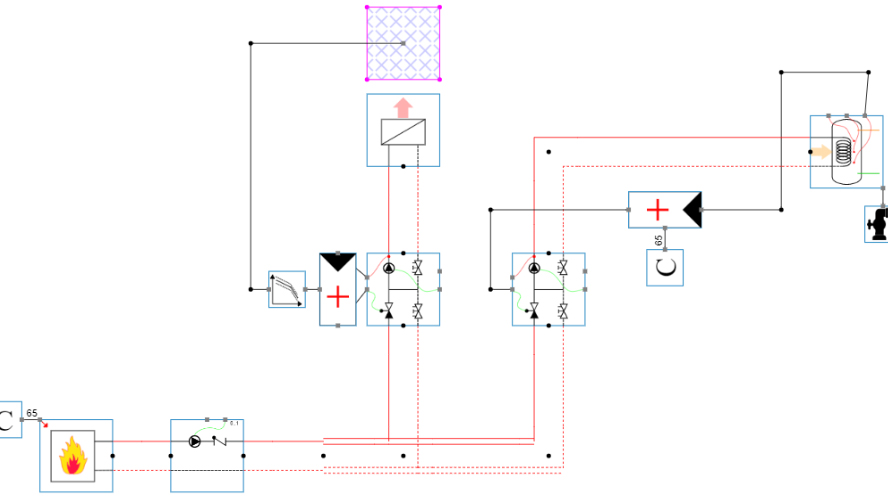
How Domestic Hot Water Systems Behave Under Different Load Profiles
Domestic hot water (DHW) systems face highly variable demand. Understanding how load patterns affect hydraulic behaviour, circulation, storage and system response is essential for stable temperatures and energy-efficient performance.
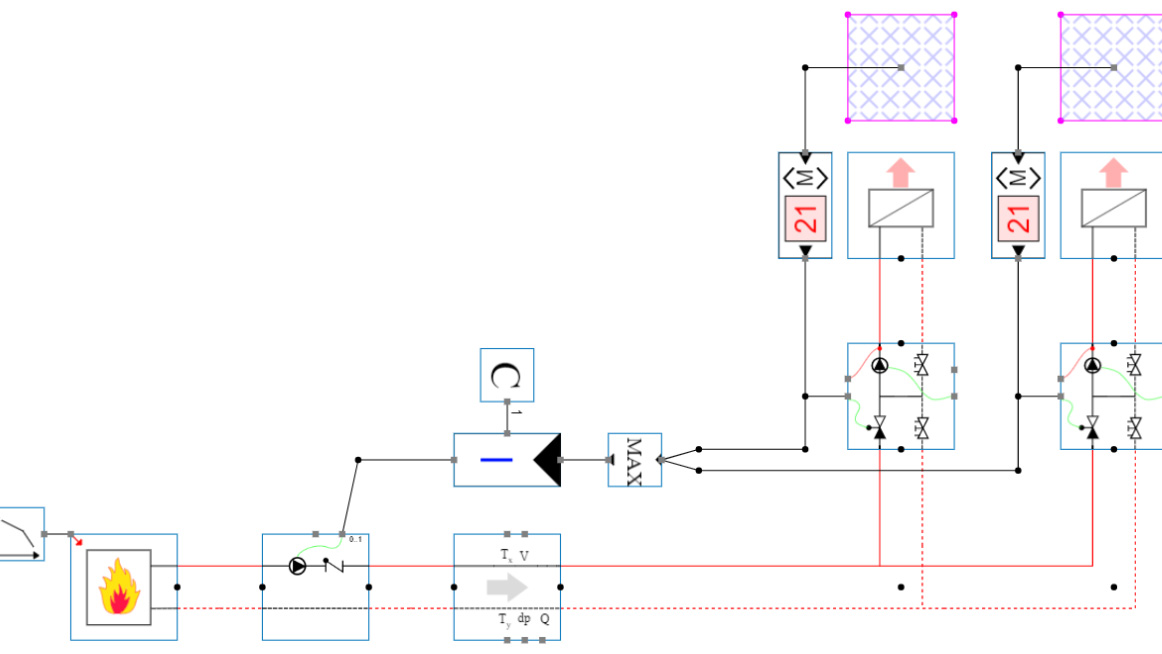
Why Primary–Secondary Coupling Still Causes Errors in Hydronic HVAC Design
Primary–secondary coupling is a powerful hydraulic concept, but small design errors can cause flow imbalance, temperature drift and unstable operation. Learn how correct coupling, circuit separation and pressure zoning improve system reliability.
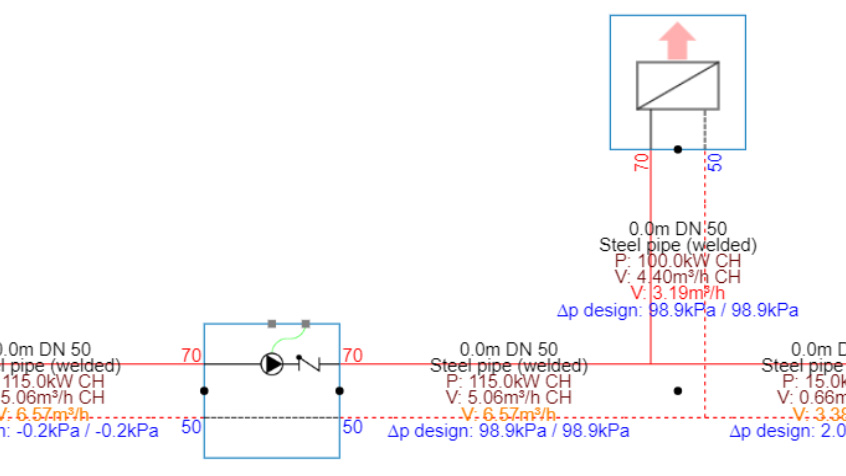
How to Identify and Solve Low Delta-T Syndrome in Heating and Cooling Networks
Low delta-T syndrome often undermines HVAC system efficiency and comfort. Understand how it arises, how to identify it through system modelling and how to fix it with proper hydraulic and control strategies.
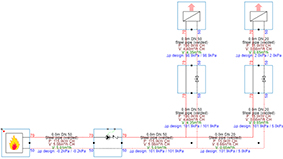
How Differential Pressure Control Is the Key to Stable HVAC Systems
Differential pressure control is essential for hydraulic stability in modern HVAC systems. Discover how controlled Δp improves flow distribution, comfort and pump efficiency in variable flow networks.
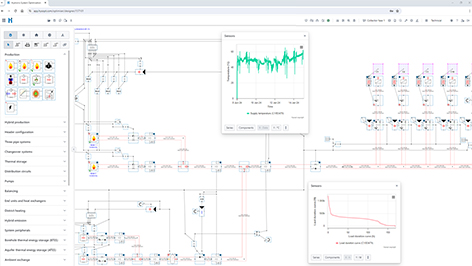
Dynamic Simulation for Chilled Water Systems: What Engineers Usually Miss
When designing chilled-water systems for HVAC, dynamic simulation reveals performance issues that standard calculations miss. Learn how variable flow, part-load behaviour and system control impact efficiency and comfort.
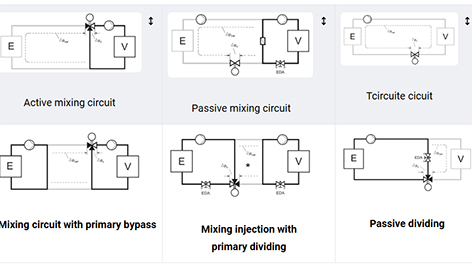
The Real Impact of Valve Authority on HVAC System Stability
Valve authority is a key determinant of system stability in hydronic HVAC. Explore how hydraulic design, pump control and valve dynamics interact — and how poor authority leads to instability and comfort issues.
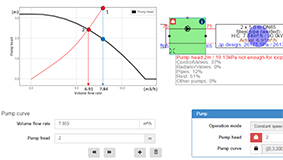
How Pump Curves, Control Strategies and System Dynamics Shape Real HVAC Performance
Selecting the correct pump curve and control strategy makes a major difference in HVAC performance. Learn how variable flow systems respond to system dynamics, and why incorrect pump selection leads to comfort issues and higher energy costs.
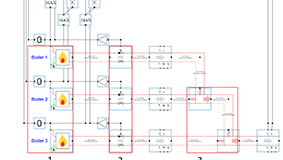
Why Hydronic System Modelling Outperforms Traditional Calculation Methods
Hydronic system modelling provides a far more accurate understanding of HVAC performance than traditional spreadsheet calculations by capturing real hydraulic interactions, component behaviour and dynamic operating conditions.
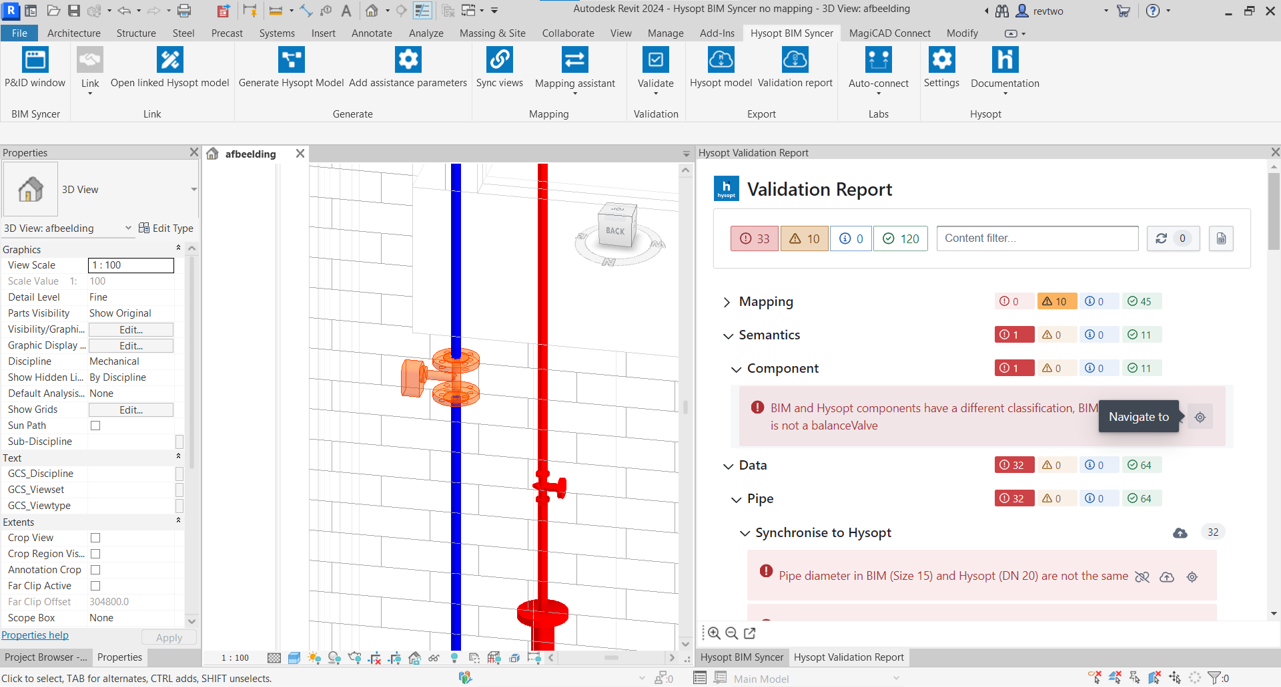
From Validated P&IDs to BIM: How Hysopt and Autodesk Eliminate HVAC Rework
Discover how Hysopt’s integration with Autodesk® Revit® enables engineers to validate HVAC system performance and sync approved P&IDs into BIM — reducing rework, errors, and time at commissioning.
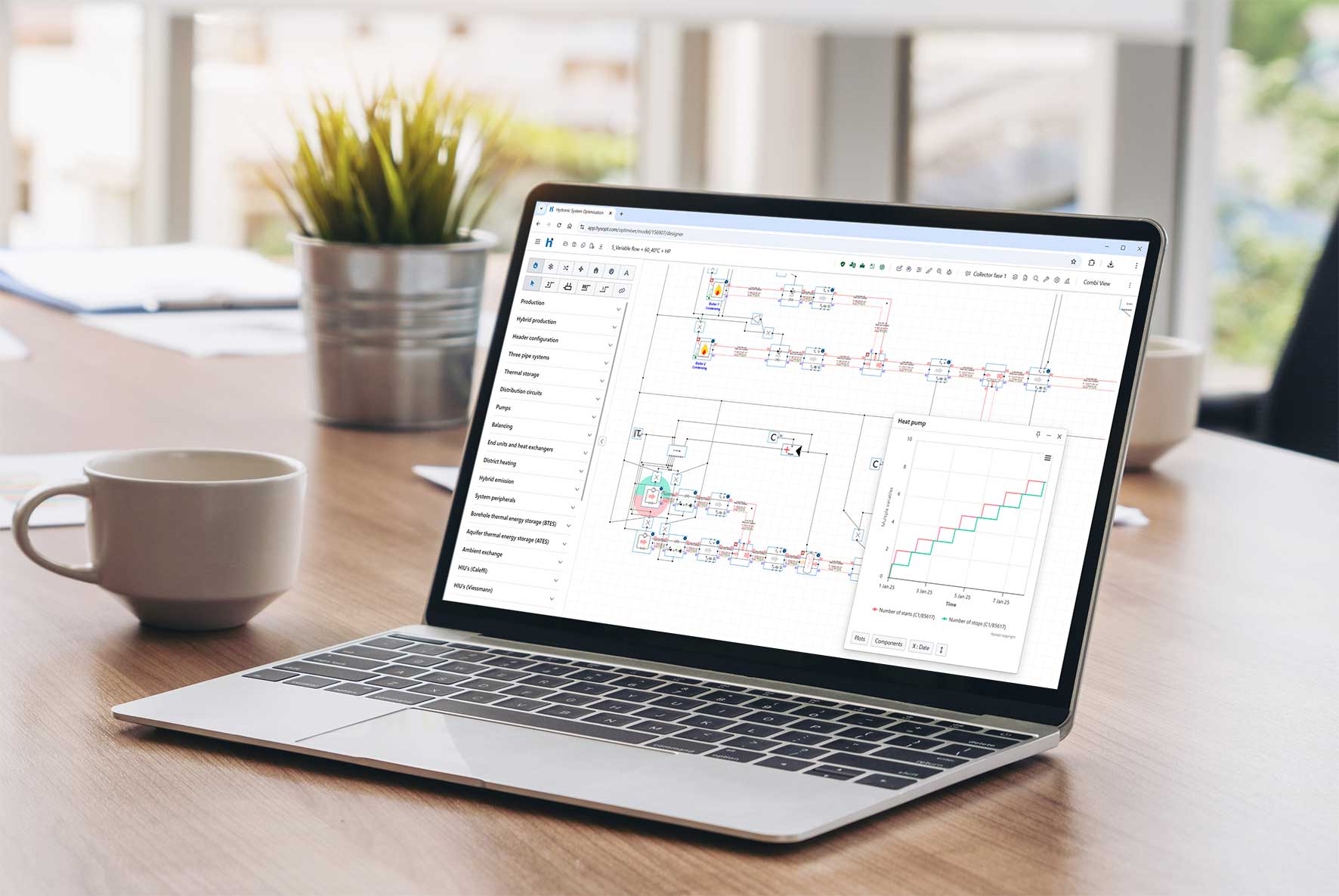
How Hysopt and Autodesk Bring HVAC Simulation and BIM Together for Smarter, Low-Carbon Design
Discover how Hysopt’s integration with Autodesk® Revit® empowers engineering teams to right-size HVAC systems, boost efficiency, and hit decarbonisation targets through simulation-driven design.

Streamlining HVAC Engineering with Automated Design Exploration
Manual calculations slow down HVAC projects and limit the number of design paths engineers can explore. Learn how automated design exploration improves speed, accuracy, and confidence across every stage of the engineering workflow.
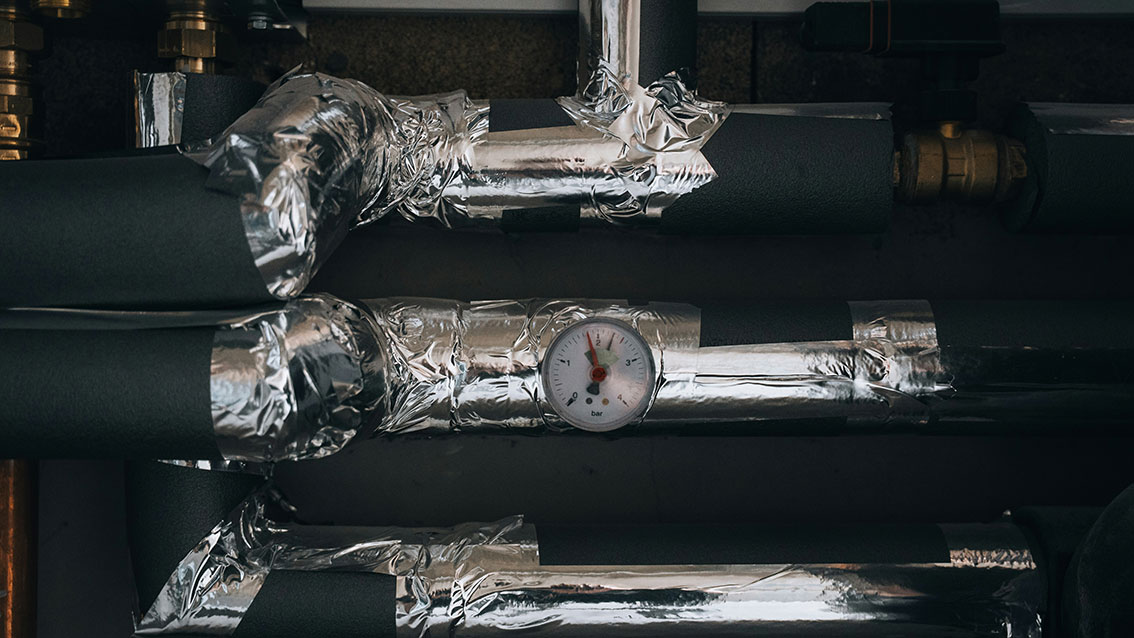
How to Balance Speed and Accuracy in HVAC Design
Fast project timelines shouldn’t come at the cost of reliable performance. Learn how modern HVAC engineers balance speed and accuracy by combining automation, simulation, and system-level insight.

Why Engineers Need Fast Concept Comparison in Modern HVAC Projects
Modern HVAC projects demand quick, reliable comparison of multiple design concepts. Learn why fast concept analysis empowers engineers to optimise performance, reduce risk, and make smarter decisions under pressure.
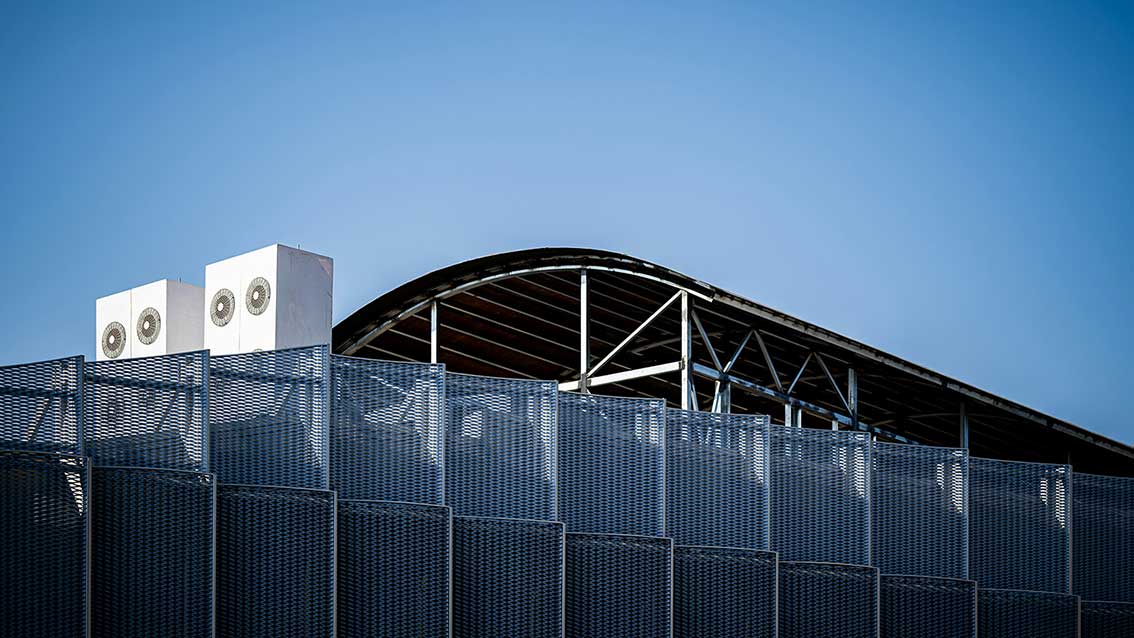
The Benefits of Early HVAC Design Exploration
Early design exploration helps engineering teams avoid late-stage surprises, compare more concepts, and build systems that deliver predictable performance. Learn why starting early is key to smarter, faster HVAC design.

Exploring HVAC Design Options Faster with Simulation Tools
Engineering teams no longer need to rely on time-consuming manual iterations to explore HVAC design options. Discover how simulation tools accelerate concept development, improve design confidence, and unlock faster, smarter decision-making.

The Future of HVAC Engineering is Quantifiable
Gut feeling and isolated calculations can’t keep up with today’s HVAC complexity. Discover why the future of HVAC engineering is fully quantifiable — driven by simulation, verifiable data, and transparent system-level insights.
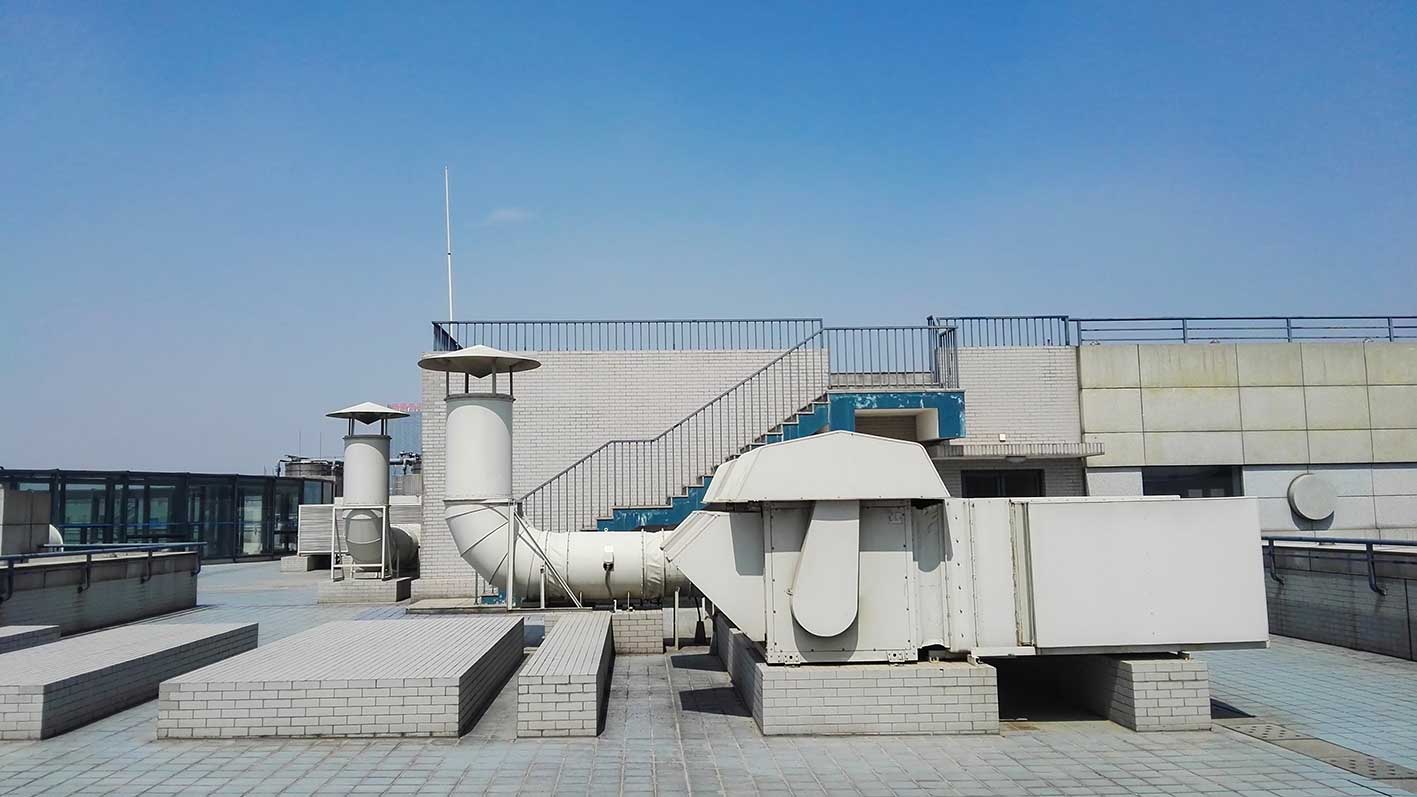
Avoiding HVAC Design Conflicts Through System-Level Analysis
Design conflicts in HVAC projects often stay hidden until installation — when they’re most expensive to fix. Learn how system-level analysis helps engineers predict issues early, align stakeholders, and defend every design decision with confidence.

Proving HVAC Design Decisions with Real Performance Evidence
HVAC engineers need more than drawings — they need defensible, data-backed evidence that proves design performance with clarity and confidence.
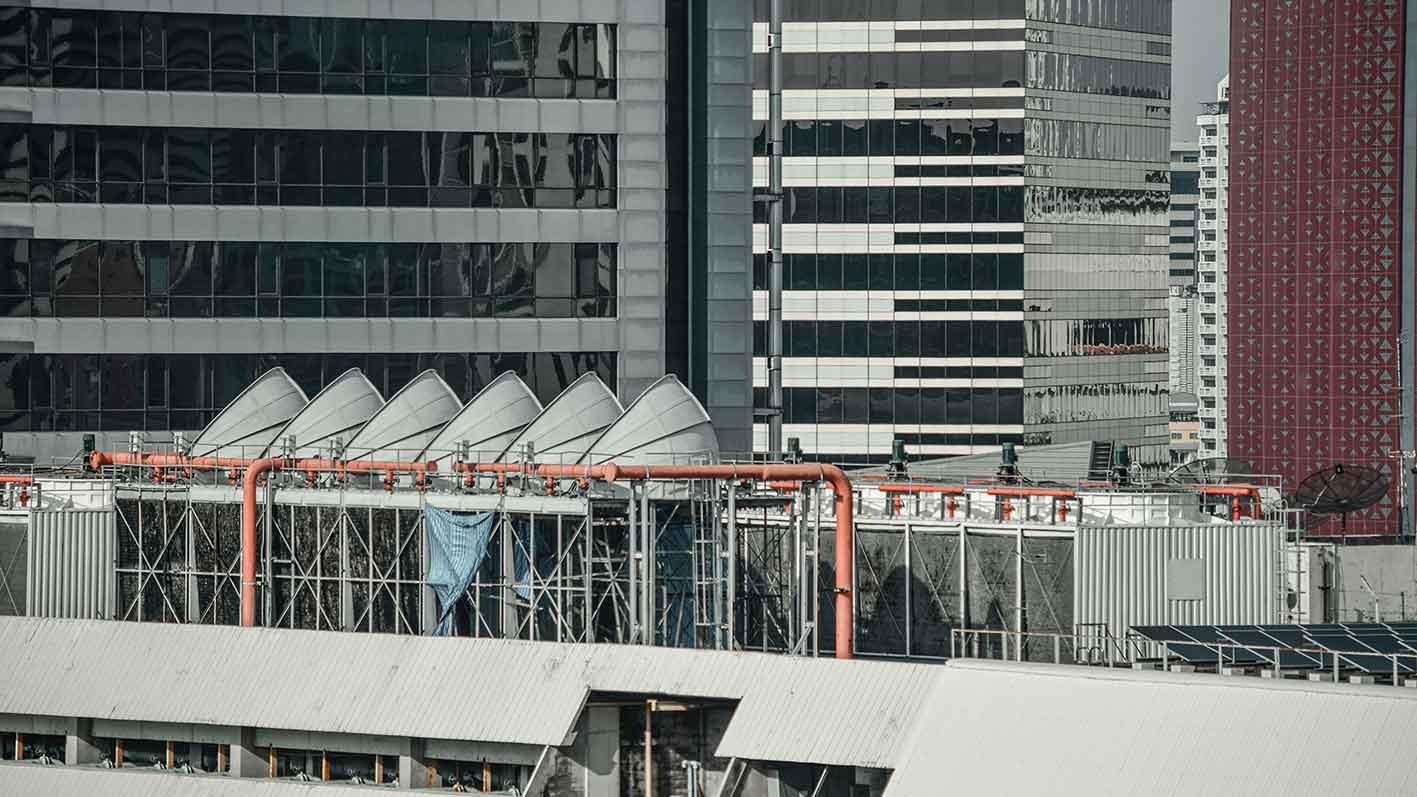
Why Simulation Beats Gut Feeling in HVAC Engineering
HVAC engineering is too complex for intuition alone. Discover why simulation-based design outperforms gut feeling, eliminates hidden risks, and helps engineers defend every decision with confidence.

How Data-Driven HVAC Design Reduces Risk and Rework
Rework and redesigns cost time and trust. Learn how data-driven HVAC design helps engineers reduce uncertainty, defend every decision, and deliver systems that perform as expected — the first time.

Delivering on Promises: Turning First-Time HVAC Clients into Partners
Winning an HVAC project is only the beginning. Learn how consistent delivery, transparent communication, and performance validation help engineers turn new clients into long-term partners.

Using Digital Twins to Strengthen Client Trust in HVAC Projects
Digital twins are reshaping how HVAC engineers build client relationships. Discover how virtual models provide transparency, real-time insight, and ongoing performance validation that earns lasting trust.

The Power of Post-Project Data in Winning Repeat Business
Winning the next HVAC project starts with how you manage the last one. Learn how post-project data and digital tools help engineers maintain client relationships, prove performance, and drive continuous improvement.

How to Keep Clients Coming Back with Proven HVAC Results
Winning a client once is good — keeping them for years is better. Discover how transparency, performance proof, and long-term monitoring help engineering teams turn HVAC projects into lasting partnerships.

Why Transparency Builds Long-Term HVAC Client Relationships
Long-term HVAC partnerships are built on more than project delivery — they depend on trust, transparency, and performance that clients can see. Discover how clear communication and data visibility help engineering teams win loyalty beyond the first job.

From Design to Delivery: Showing HVAC Performance with Confidence
Moving from design to delivery doesn’t have to mean losing control of quality. Learn how digital HVAC tools help engineers prove design intent, validate results, and communicate performance clearly across every project phase.

Design Validation Made Simple: HVAC Tools That Speak for You
Validating HVAC design quality doesn’t need to be complex. Discover how modern HVAC tools automate performance checks, document design logic, and communicate results clearly to clients and contractors.

Why Quality Communication Wins Clients in HVAC Projects
Technical skill isn’t enough to win modern HVAC projects — communication is what turns design expertise into client confidence. Discover how clarity, transparency, and collaboration strengthen relationships and secure repeat business.

Building Trust Through Transparent HVAC Documentation
Transparent HVAC documentation builds credibility long before installation begins. Discover how digital tools help engineers communicate design intent, validate assumptions, and win client trust through clarity.

How to Prove HVAC Design Quality with Data, Not Slides
In a world where clients demand proof, not promises, HVAC engineers must move beyond PowerPoint slides. Learn how data-driven design tools turn complex HVAC models into clear evidence of quality and performance.

How to Present HVAC Design Proposals That Win Client Confidence
A successful HVAC design proposal doesn’t just meet technical specs — it builds trust. Discover how data, clarity, and digital tools help engineers present proposals that stand out and win more projects.

Turning Concept Designs Into Competitive Advantages
Concept designs are more than sketches — they’re your first opportunity to win trust, prove expertise, and secure projects. Learn how modern HVAC design tools turn early-stage ideas into winning proposals.

Why Speed and Accuracy Matter in HVAC Tendering
In HVAC project tendering, time is your most valuable asset — but accuracy wins trust. Learn how fast, data-backed design proposals help engineering firms secure bids and deliver consistent results.

The Role of Digital Tools in Faster HVAC Design Submissions
Fast, accurate HVAC design submissions win projects. Learn how digital tools reduce proposal time, prevent errors, and help engineers deliver higher-quality designs under tight deadlines.

How to Create Winning HVAC Proposals in Less Time
Winning more HVAC projects isn’t just about price — it’s about demonstrating technical confidence and value faster. Here’s how digital tools help engineers deliver accurate, high-impact proposals in record time.
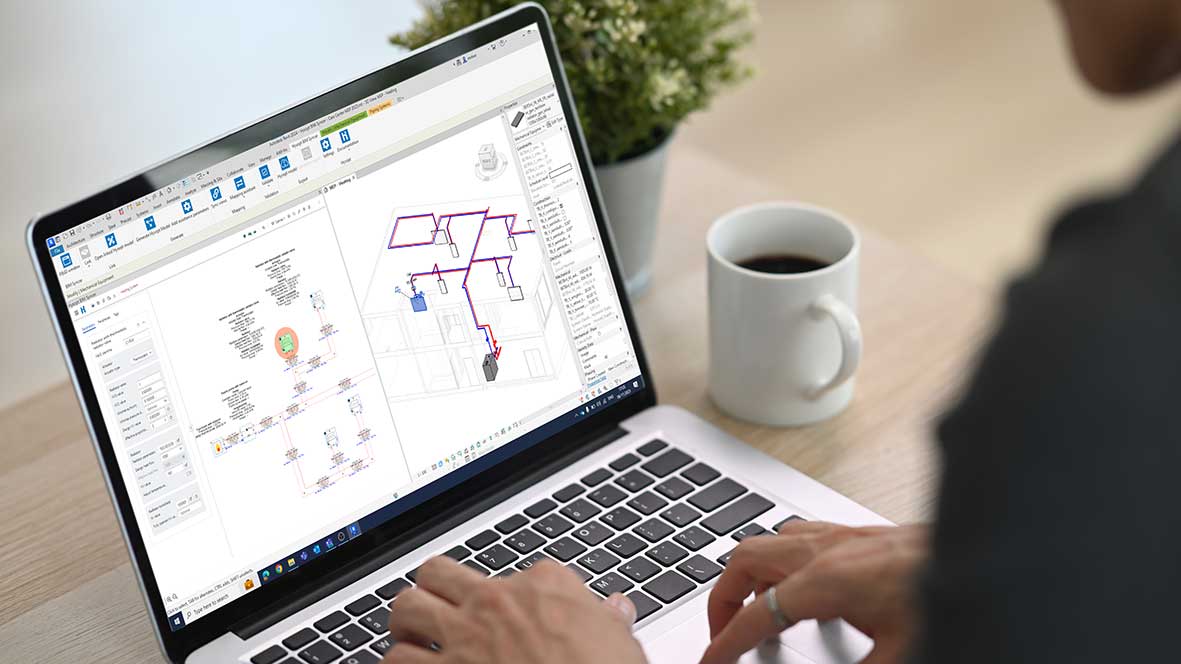
Bridging the Gap Between HVAC Engineering and BIM Modelling
When it comes to designing efficient HVAC systems, engineers and BIM modellers have long worked in parallel — not in sync. While engineers focus on hydraulic calculations and system functionality, BIM modellers concentrate on spatial layout and component placement. The result? A digital disconnect that often leads to errors, rework, and unnecessary costs. That’s where the Hysopt BIM Syncer, developed in collaboration with Autodesk®, changes the game.
.jpg)
Closing the HVAC Performance Gap: Why It Matters More Than Ever
Many HVAC systems underperform compared to their design specs. In this blog, we explore how closing the performance gap helps you deliver on efficiency promises, reduce waste, and build long-term value across your portfolio.

Net-Zero HVAC in 2026 Building Codes: What You Need to Know
Net-zero is no longer a future goal—it’s the new baseline. As 2026 building regulations take effect across the UK and EU, the pressure is on to ensure HVAC systems don’t just meet minimum efficiency thresholds but actively contribute to decarbonisation strategies. For engineers, contractors and portfolio owners, that shift is more than technical. It changes how systems are designed, commissioned, and justified from the very first sketch.
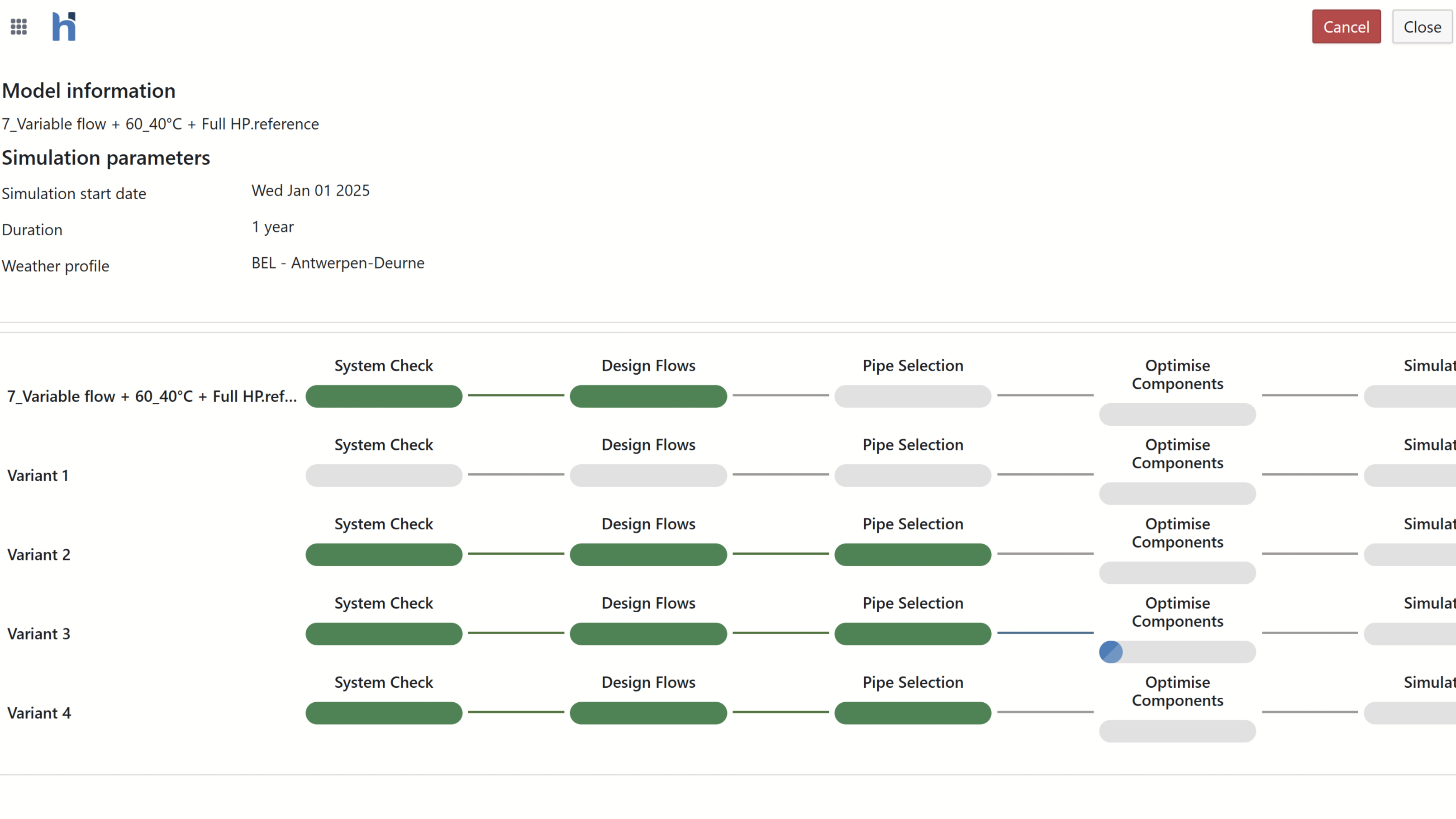
How Sensitivity Analysis Improves Hydronic Efficiency
Even small variations in flow and diameter choices can create long-term inefficiencies in hydronic HVAC systems. Sensitivity analysis allows engineers to test, refine, and confidently select the most efficient system configuration—reducing energy use and cost without compromising comfort.

How Digital Twins Will Reshape HVAC by 2030
By 2030, digital twins will be the standard in HVAC system management. Discover how they help optimise performance, cut emissions, and reduce lifecycle costs—especially across large building portfolios.

Why Spreadsheets Fall Short for HVAC System Design
Spreadsheets may be familiar tools, but they aren’t built to model the physics of complex HVAC systems. In this blog, we explore the limitations of traditional tools—and what engineers gain when they switch to HVAC-specific software.
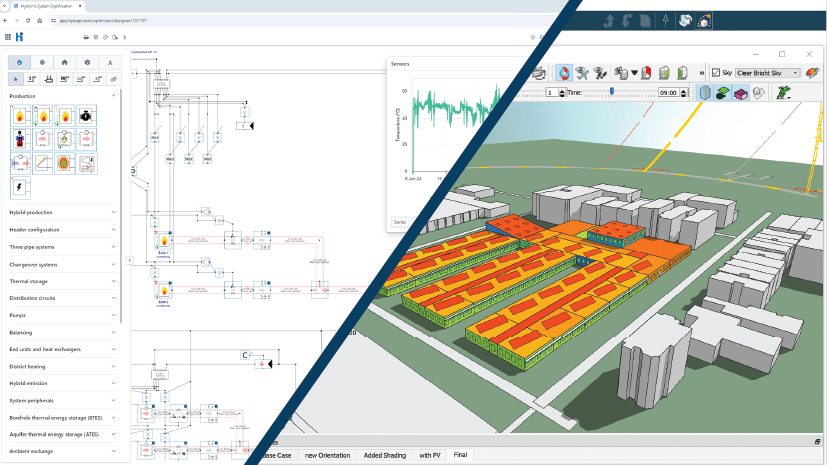
Understanding the difference between Building Simulation Software and Hysopt
This blog explains the key differences and compatibilities between building simulation software and Hysopt, showing how the two complement each other to deliver more reliable, efficient, and verifiable HVAC systems.
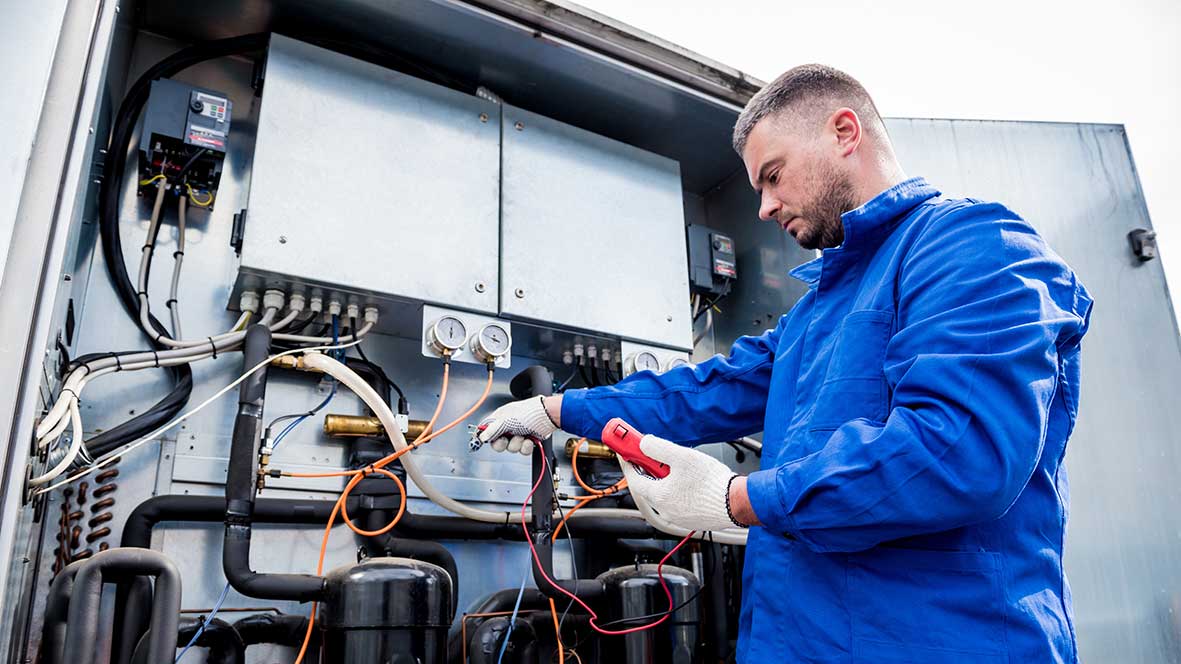
Control Strategy as the Backbone of Efficient HVAC Systems
Control strategy is essential for HVAC systems to operate efficiently and reliably. Discover how well-calibrated sensors, controls, and monitoring ensure comfort and energy savings.
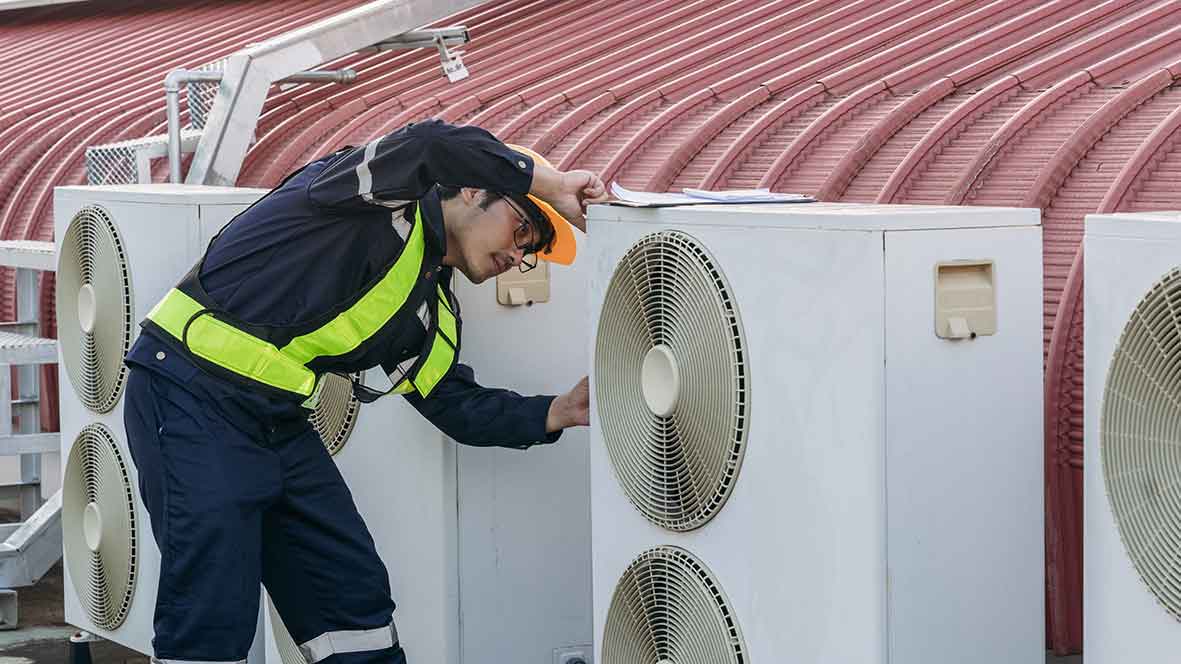
Commissioning HVAC Systems That Truly Perform
A structured commissioning process ensures an HVAC system works correctly from day one. Discover how planning, coordination, and quality control make the difference.

HVAC Software That Designs Smarter and Delivers Better-Performing Systems
HVAC software gives engineers and designers the insight and tools to size systems accurately, save energy, and enhance comfort. Discover how simulation and data make the difference.

Commissioning an HVAC System: Step by Step to a Flawless Handover
A well-planned commissioning process ensures a smooth HVAC handover. Follow this step-by-step guide for an efficient and error-free transition to operational use.
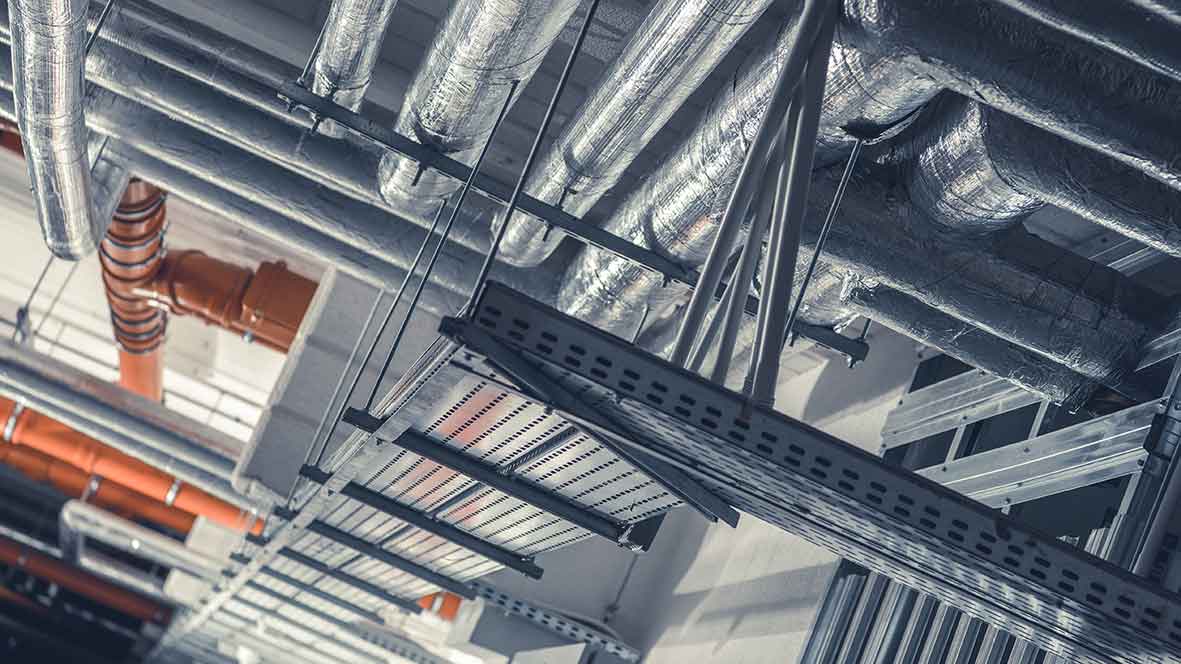
Common Mistakes in HVAC Installations and How to Avoid Them
An HVAC installation can fail due to incorrect sizing, poor coordination, or incomplete documentation. Discover the most common mistakes and how to prevent them through smart preparation and validation.
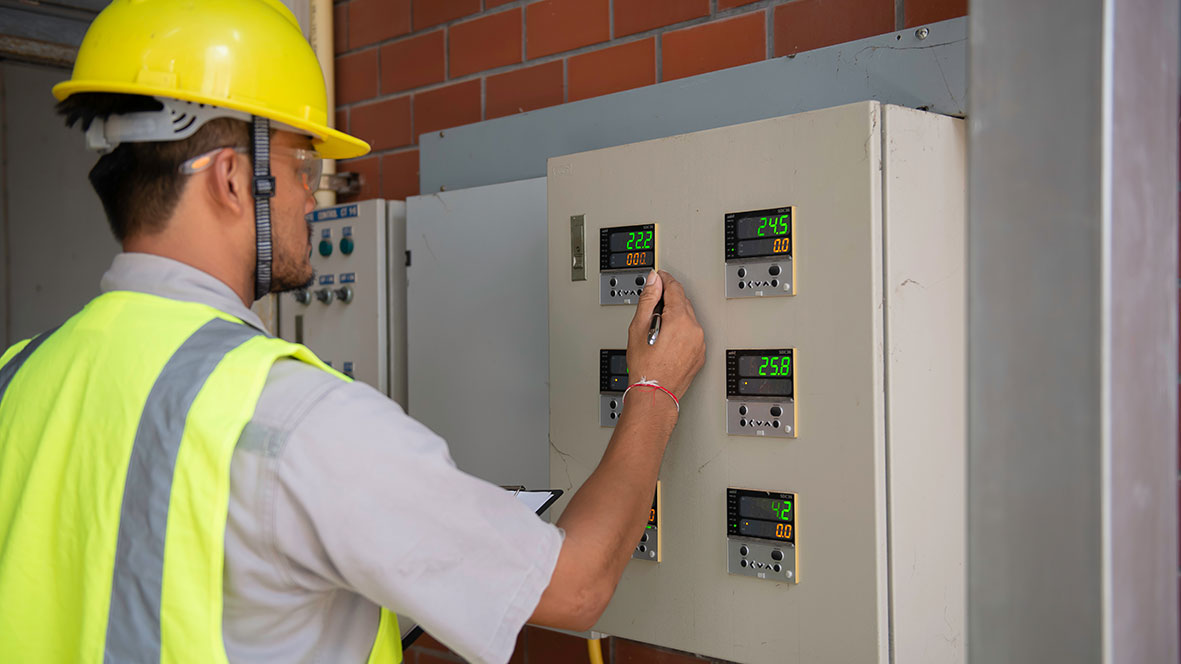
How Control Strategy Prevents Failures and Inefficiency in HVAC Systems
Control strategy keeps HVAC systems stable, efficient, and free from failures. Discover how smart control strategies prevent problems and enhance performance.
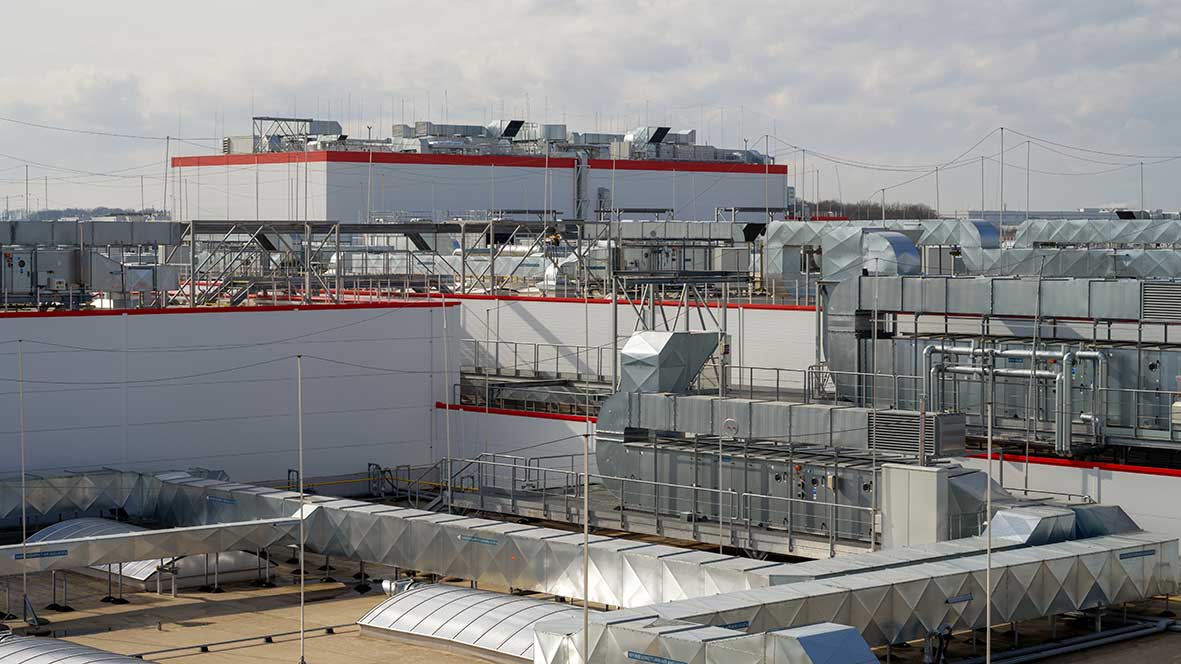
HVAC Installation That Performs from Day One
An HVAC installation should work as intended from the very first day. Discover how design, execution, and commissioning together ensure performance, comfort, and energy efficiency.

The Biggest Mistakes When Choosing HVAC Software (and How to Avoid Them)
Not every HVAC software fits every project. Discover the most common mistakes when choosing software, and how to avoid investing in the wrong tool.

A year of strategic Partnership with Autodesk
Hysopt marks one year as an Autodesk AEC Strategic Partner—combining BIM integration with physics-based HVAC software to improve MEP analysis, project delivery and decarbonisation.

What Engineers Really Need From Their HVAC Computer Software
Modern HVAC computer software should go far beyond load calculations. Discover what engineers value most—simulation accuracy, BIM integration, and confidence in system performance.

HVAC Business Software: How to Choose a Platform That Grows with Your Portfolio
From lifecycle modelling to performance tracking, today’s HVAC business software needs to do more than calculations. Learn how to choose tools that scale across your entire estate.

Turning System Data Into Action with HVAC Management Software
HVAC management software helps facility teams go beyond monitoring to active optimisation. Learn how the right tools improve comfort, reduce costs, and support smarter planning.
